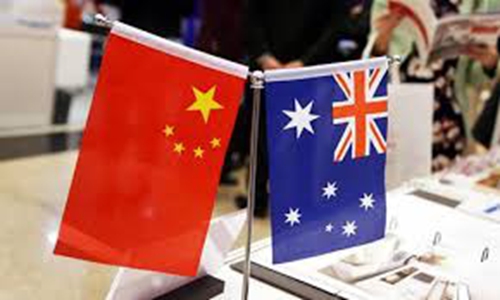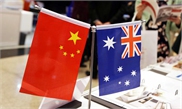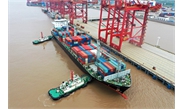
File photo
You can't have your cake and eat it too is a proverb that could be of use to some Australian officials, who continue to escalate tensions with China while hoping bilateral trade will remain intact.On Wednesday, Australian Minister for Trade Simon Birmingham requested urgent talks with Chinese Commerce Minister Zhong Shan, according to a Reuters report. At the same time, however, Birmingham said Australia would continue to push for an international inquiry into the COVID-19 outbreak.
China has made it clear that the recent beef import suspensions and tariff threats on barley shipments are not politically motivated, and that its decisions are made based on normal market rules and facts. While China has no interest in "economically coercing" Australia, as was speculated by some politicians, it is no secret that unfriendly moves from the Morrison government have thrown bilateral ties into a deep freeze.
And there is no guarantee that economic and trade activities between the two countries will go on as usual amid deteriorating relations, since economic interdependence between China and Australia is not high.
China's trade with some countries continues to move forward despite political frictions. For instance, China and Japan have strengthened economic and trade cooperation in spite of their historical issues; China and the US have maintained close economic ties amid political tensions; and China's trade and investment with India continues to grow, accompanied by frequent disputes over various issues. Japan plays an important role in the Asian industrial chain, to which China has attached great importance. A US-China decoupling is unrealistic given their huge economic scales. And India's promising market potential is highly valued by China.
None of the above-mentioned situations are relevant to China-Australia relations. For China, Australia does not represent a big market and is not irreplaceable in terms of trade.
When the world enters the buyer's market, China has the right to select trading partners that can maximize its interest and shun biased markets that could bring uncertainty to economic exchanges. It is regrettable if some see this as economic coercion. In the business world, it is inevitably to avoid cooperation with a partner that is both hostile and replaceable.
If bilateral relations continue to deteriorate, private Chinese investment, tourism and study in Australia may also be affected, because people can always find alternative destinations in these aspects. Although beef import suspensions and potential barley tariffs are not retaliatory actions from China, many still regard the moves negative signals which will inevitably discourage private investment and exchanges in the future.
A favorable political environment cannot exist without contributions from both sides, which is why we hope Australia will rethink its hostile attitude toward China. If tensions continue on their current trajectory, it would be delusional to expect trade relations to remain on track.



